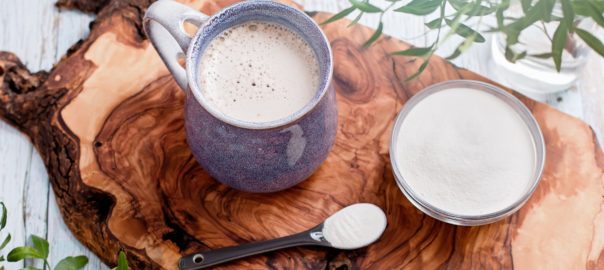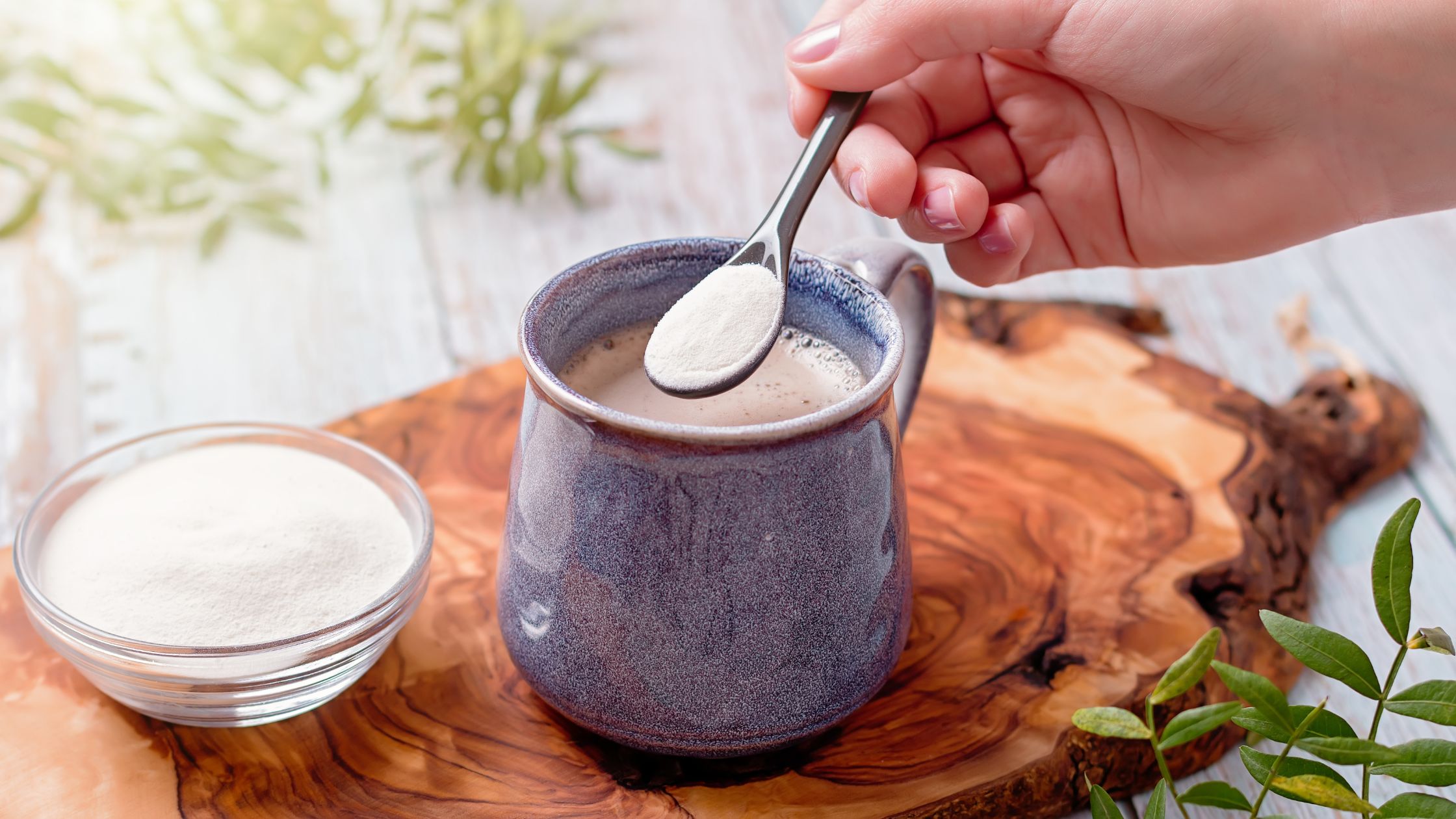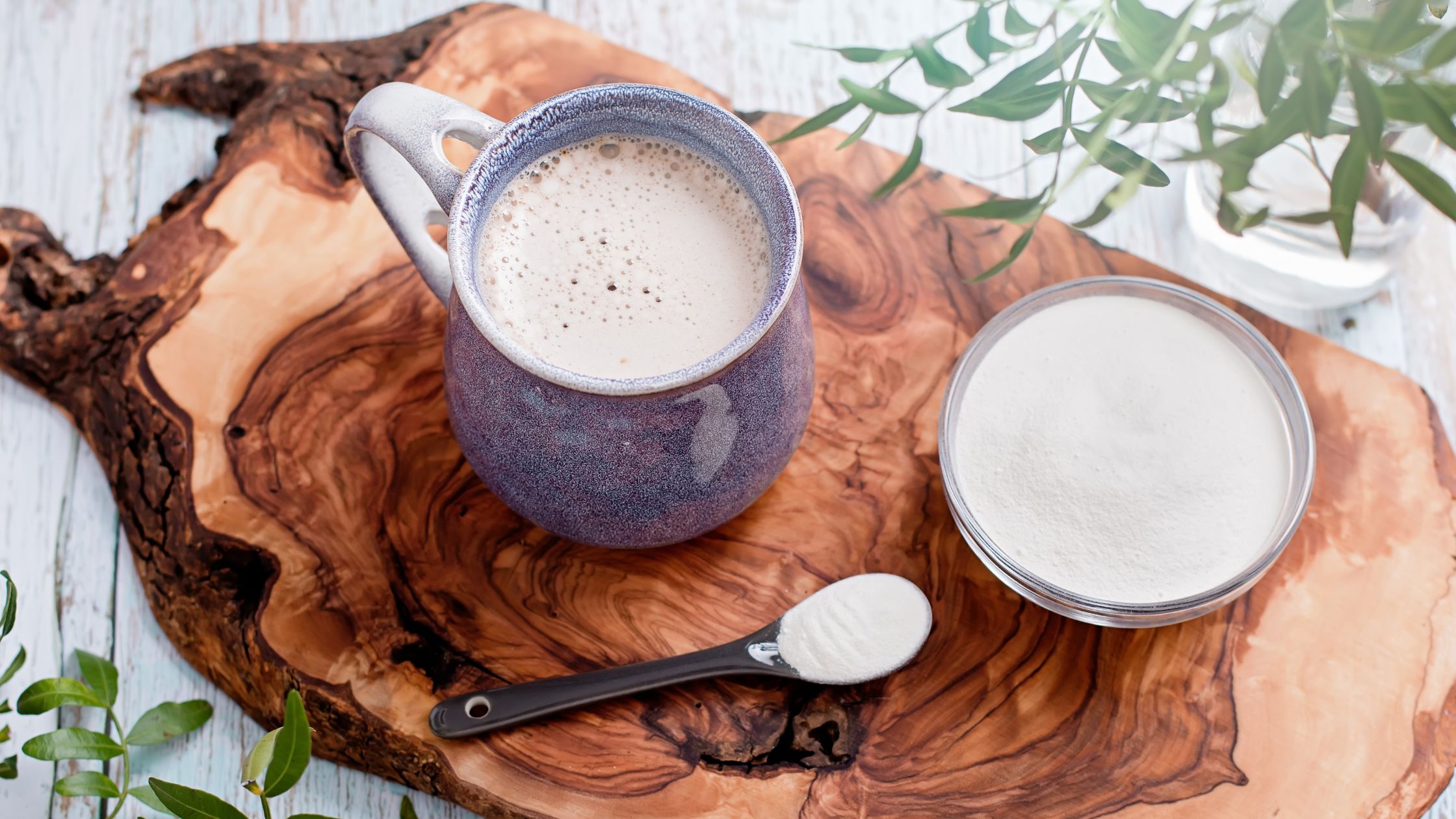As more people prioritize their health and wellness, there has been a growing interest in supplementing with either protein powder and/or collagen. While they may sound similar, these products are actually quite different and serve different purposes.
What are the differences between protein powder and collagen?
Protein powder is a dietary supplement that provides a concentrated source of protein, which is essential for building and repairing muscles, bones, skin, and other tissues in the body. Protein powder can be made from a variety of sources such as whey, casein, and pea. It is often used by athletes and fitness enthusiasts in order to enhance performance, build muscle mass, and to aid in post-workout recovery. It is important to note that protein powder can be used by anyone looking to increase their protein intake, including vegetarians, based on the source of the protein and their preference for animal protein or not.
Collagen, on the other hand, is the most abundant protein in the body. It is responsible for maintaining the health and elasticity of our skin, bones, joints, and other connective tissues. Our body tends to produce less collagen as we age, which can result in wrinkles, joint pain, or other signs of aging. Collagen supplements are derived from animal sources, such as cow or fish. In addition to supporting skin and joint health it can also promote healthy hair and nail.
Protein powder benefits
- Building muscle mass: It’s an excellent source of amino acids which are essential for building and repairing muscle tissue. Getting enough Protein is very important for people over 40, as it prevents muscle wasting that can happen as we age. Protein also helps promote a faster metabolic rate. And let’s not forget that good quality muscle mass is necessary for a strong and capable body, a stronger core, and better posture.
- Weight loss: Many people trying to lose weight may be eating too little protein. The use of protein powder may help boost the system a little
- Post workout recovery: Adding a protein boost after workouts can often help reduce muscle soreness and support recovery
- Convenience: Protein powder is an easy way to up your protein intake, especially if you are on the go
Collagen powder benefits
- Healthy skin, hair, and nails: Collagen promotes elasticity and hydration. This can help to improve the appearance of your skin, hair, and nails
- Joint health: Studies have shown collagen is very helpful for repairing cartilage as well as reducing joint pain and stiffness
- Gut health: Collagen helps support your gut by helping to balance the beneficial bacteria as well as helping to create a strong gut lining both of which can help with digestion
- Bone health: In addition to improving hair, skin, and nails, collagen can also improve how strong your bones are and your bone density
Which one should I use?
Whether you choose protein powder or collagen powder really depends on your wellness goals and your dietary needs.
Looking to build muscle mass or recover after a workout?
Protein powder may be a better choice.
Want to improve the health and appearance of your skin, hair, and nails, or support joint and gut health?
Collagen may be a better choice here.
In conclusion
Both protein powder and collagen have their own unique benefits and can be used to supplement a healthy diet.
By understanding the differences between the two, you can make an informed decision about which one is right for you.
My preferred powder, whether it’s protein or collagen, is Rootz. I’ve written about them before and I like their clean label profile and how they create their products.
Here’s a quick and easy smoothie that uses either protein powder or collagen.
- 1 serving protein powder or collagen powder
- 1 ½ cup almond milk
- 1-2 T. seeds (flax, chia, hemp, pumpkin, sunflower, sesame)
- 1 handful greens
- 1/2 C. berries, fresh or frozen
- 2 T. melted coconut oil
- Place all ingredients into a blender except the coconut oil
- Pour in the coconut oil while the blender is going in order to avoid clumping





